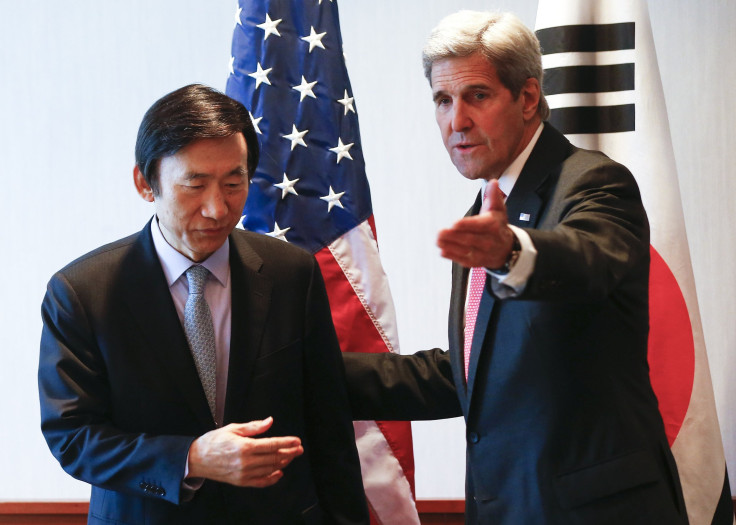US Deploys Additional Patriot Missiles In South Korea While China Urges Washington To ‘Act Cautiously’

The U.S. temporarily deployed an additional Patriot missile battery in South Korea as a part of its response to North Korea’s launch of a satellite last week and a nuclear test earlier, both of which were condemned by the international community. The deployment comes before the talks next week to discuss setting up an even more sophisticated U.S. missile defense system, a move over which Russia and China expressed concerns, the Associated Press (AP) reported.
The U.S. military command in South Korea also said Saturday, according to AP, that the air defense battery from Ft. Bliss, Texas has been conducting ballistic missile training at the Osan Air Base near Seoul using the Patriot system. The U.S. has been operating the Patriot system in South Korea to counter North Korean threats from its shorter-range and medium-range missiles.
However, it was not clear how long the Patriot missile battery would remain in South Korea, AP reported, citing a spokeswoman for the U.S. Forces Korea, a sub-unified command of United States Pacific Command.
The Lt. Gen. Thomas Vandal, the commander of the U.S. Eighth Army, said the training was being conducted to help the South Korean army defend themselves from North Korean provocations.
“Exercises like this ensure we are always ready to defend against an attack from North Korea,” Vandal said in a statement, according to AP. “North Korea's continued development of ballistic missiles against the expressed will of the international community requires the alliance to maintain effective and ready ballistic missile defenses.”
There was speculation in South Korean media that the Terminal High-Altitude Area Defense (THAAD), one of the most advanced missile defense systems, may be deployed to the region, but talks over the system were officially announced only after North Korea’s satellite launch last week. Beijing and Moscow expressed their displeasure over the move while other critics said that this may allow Washington to detect other countries' missiles.

Chinese Foreign Minister Wang Yi expressed Beijing’s opposition to the deployment while speaking to U.S. Secretary of State John Kerry in Munich. He also “demanded the U.S. side must act cautiously, not use the opportunity to harm China's security interests and not add a new complicating factor to regional peace and stability,” China’s foreign ministry said in a statement, according to Reuters.
According to Wang, other countries should think of how to restart talks on the nuclear issue as it “completely accords with the interests of all sides, including China and the United States.”
North Korea, on the other hand, had threatened to open a nuclear war, and said that it would strengthen its armed forces if THAAD is deployed in South Korea.
Meanwhile, a South Korean defense official told AP that Seoul and Washington are eager to deploy the THAAD system at an early date and will discuss when and where to deploy the system during the upcoming talks. The official also defended the deployment of the defense system, saying it is only to protect South Korea from the North’s provocations and is not targeting China or anyone else.
According to a report by Yonhap, the South Korean military will also strategically focus on picking a site for the deployment of THAAD.
“Considering the stances of neighboring countries when (South Korea) picking an area to host the THAAD is not militarily (right),” an official from South Korea’s defense ministry said, according to Yonhap. “It does not necessarily mean South Korea joins the U.S. missile defense system…The THAAD does not intercept intercontinental ballistic missiles nor does it intend to defend the mainland U.S. or any other third country.”
© Copyright IBTimes 2024. All rights reserved.






















